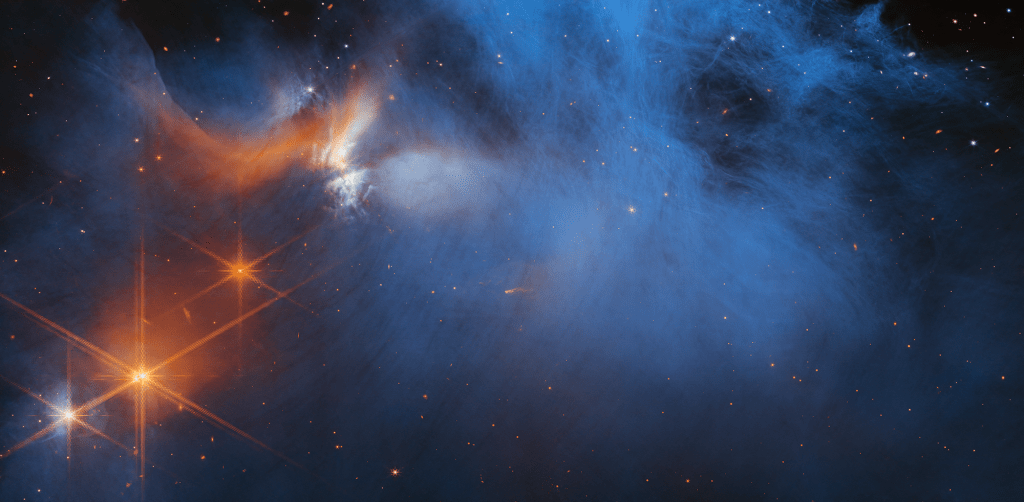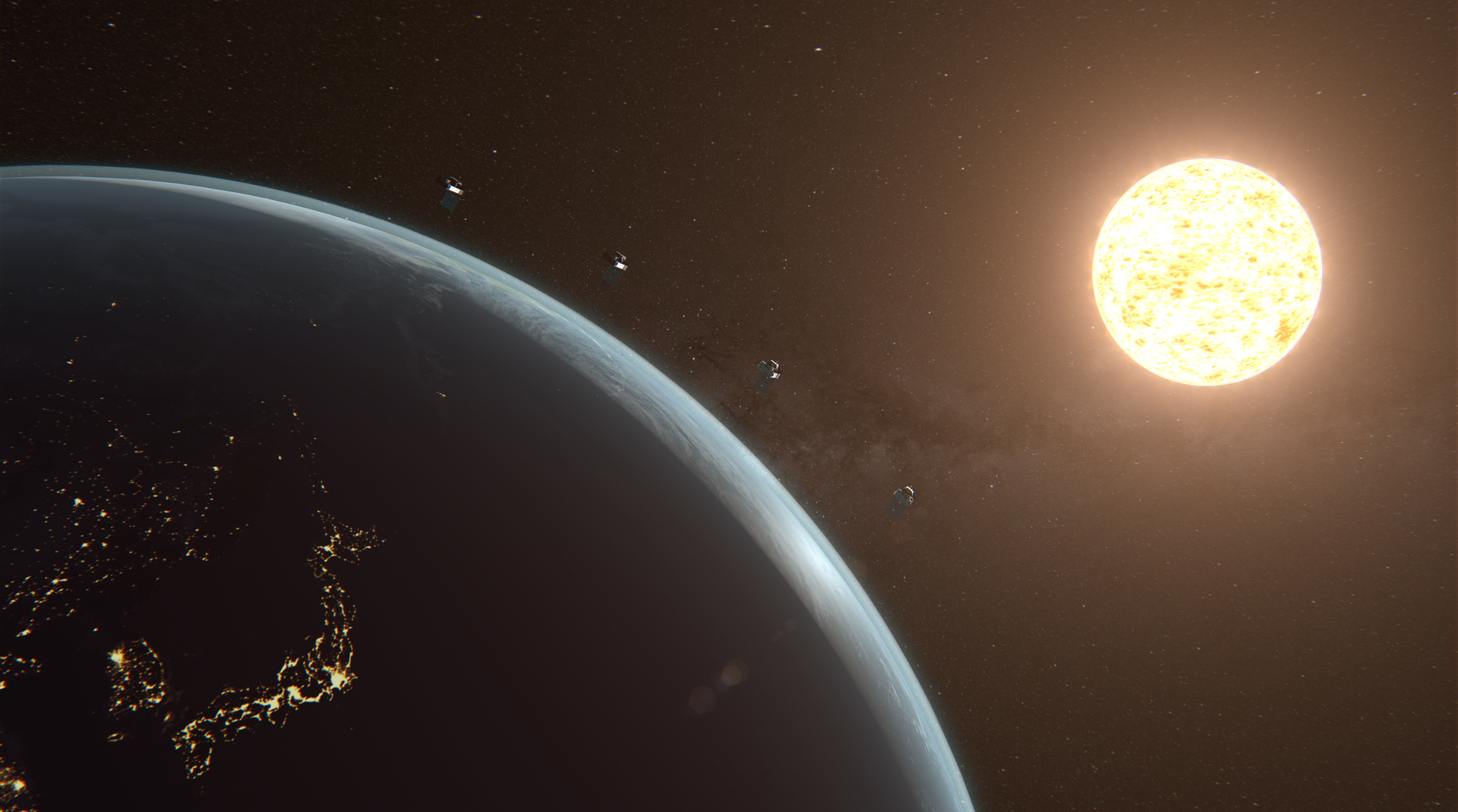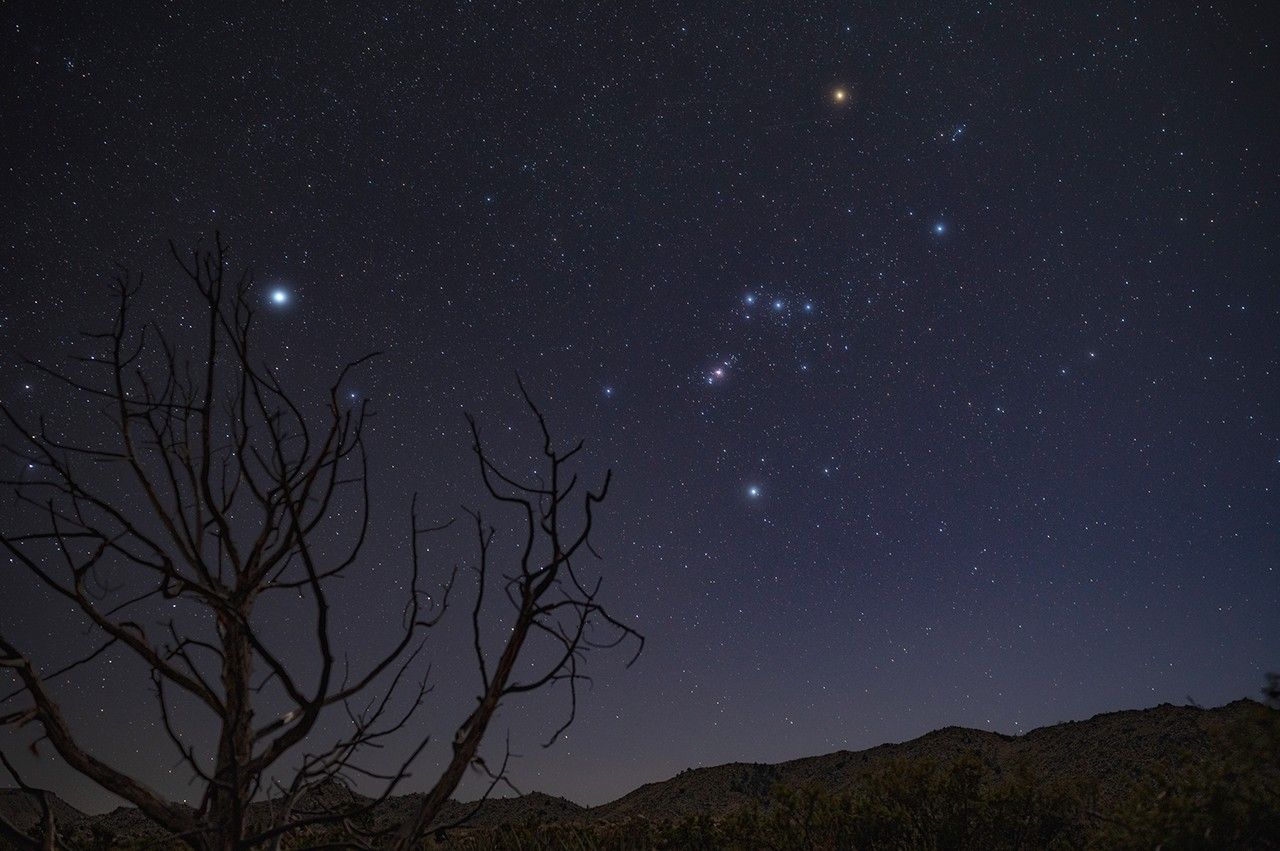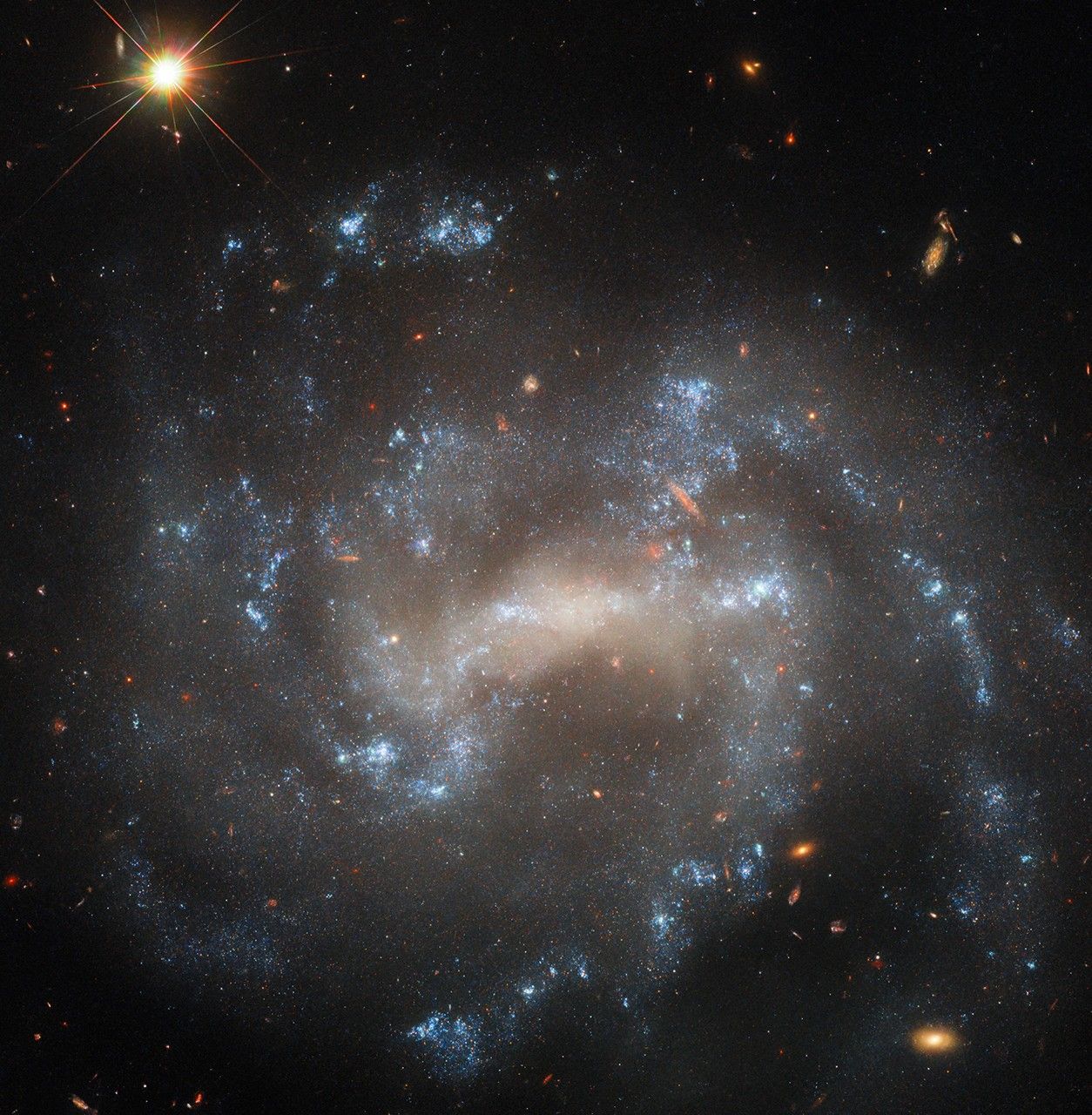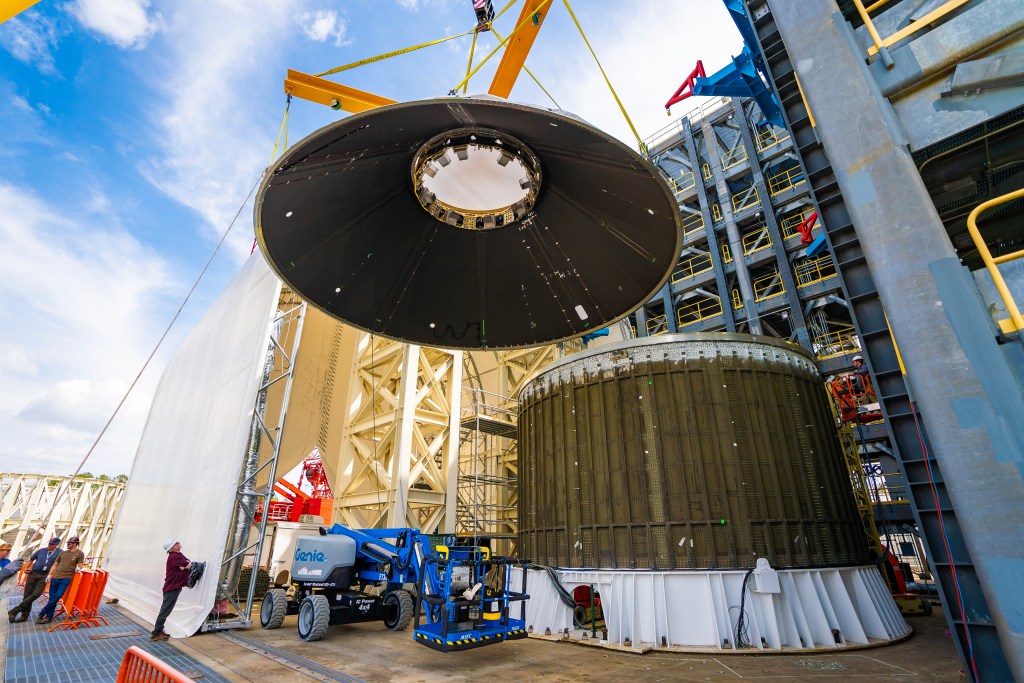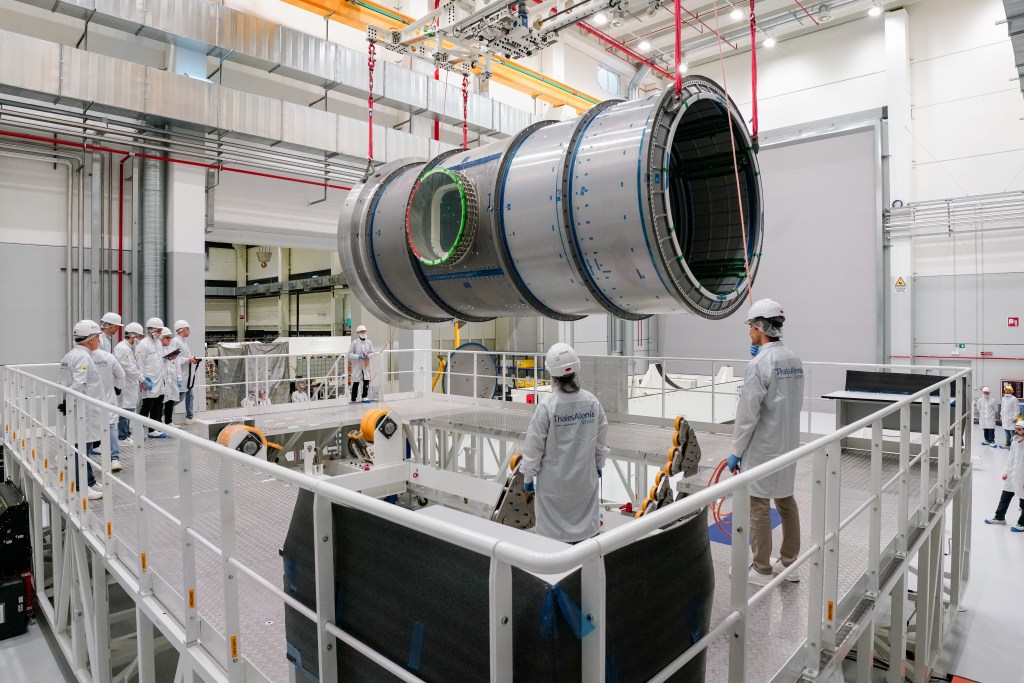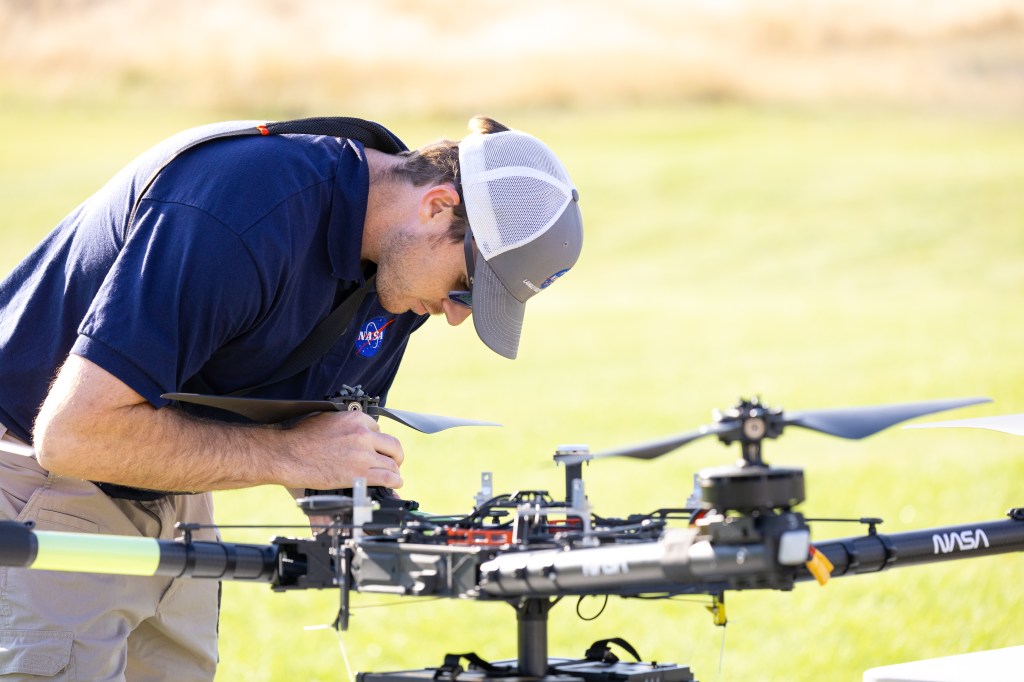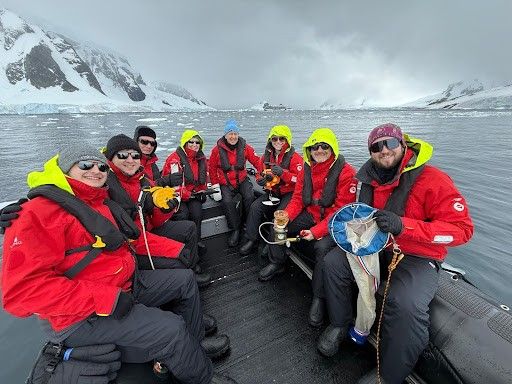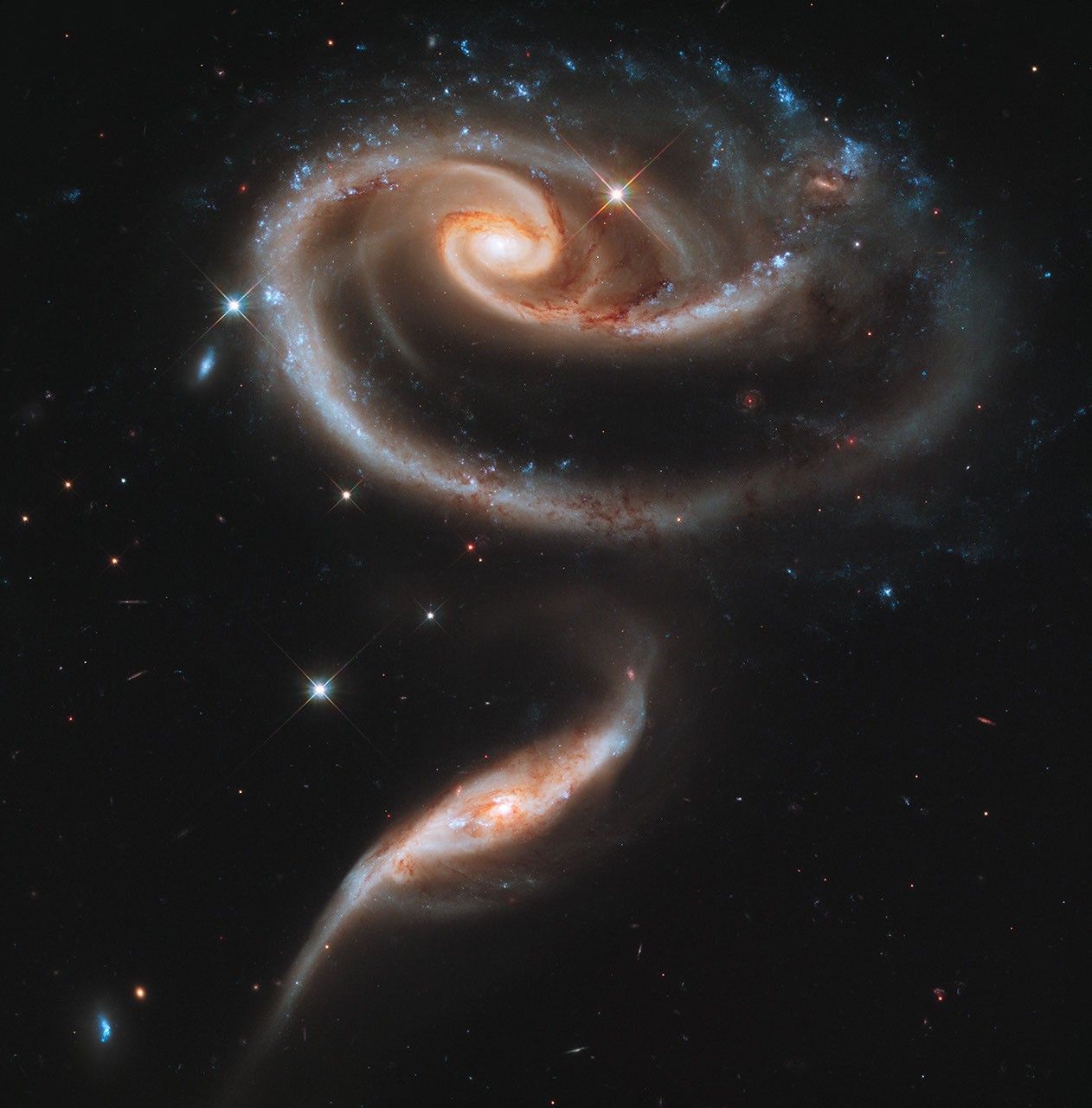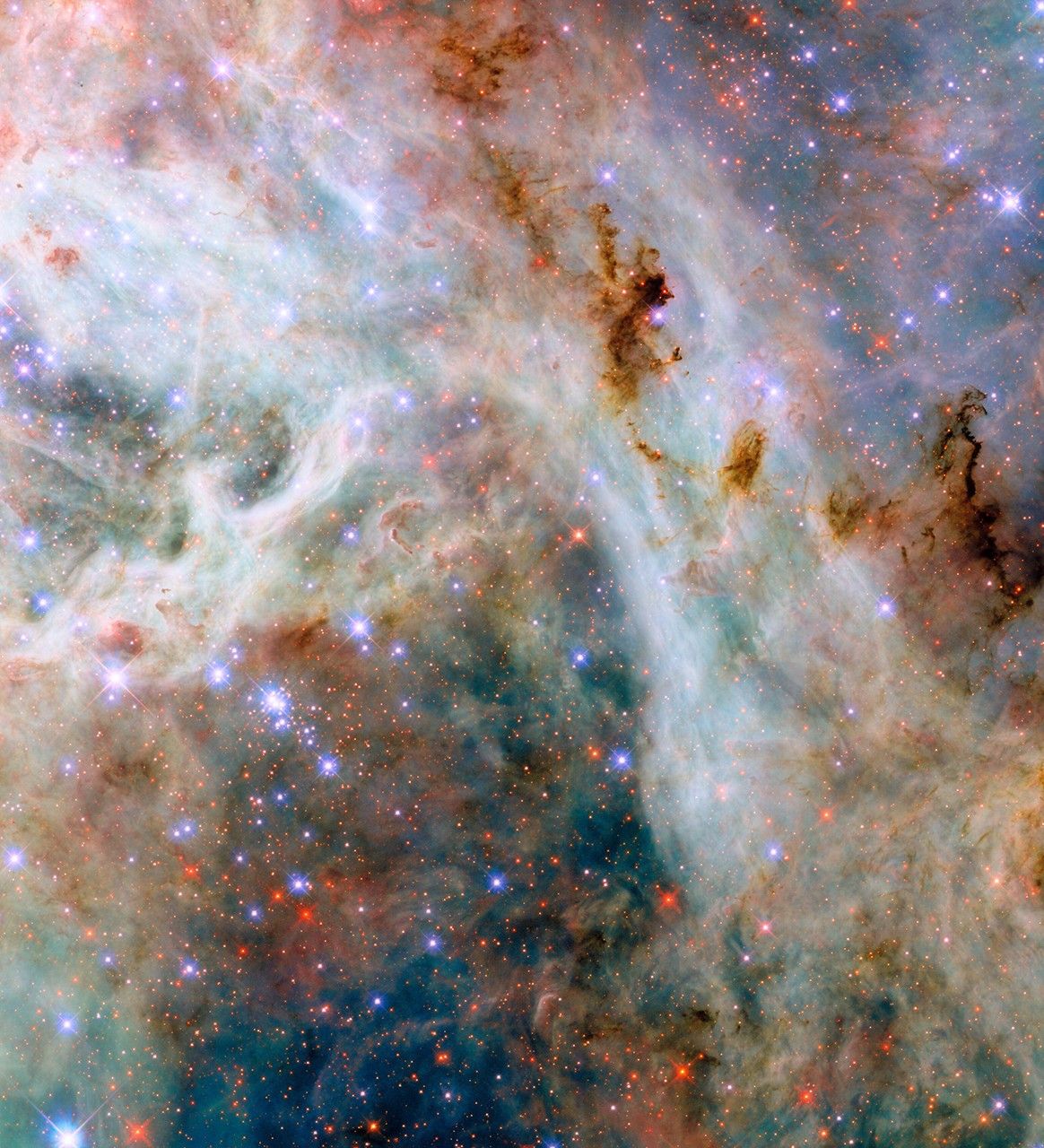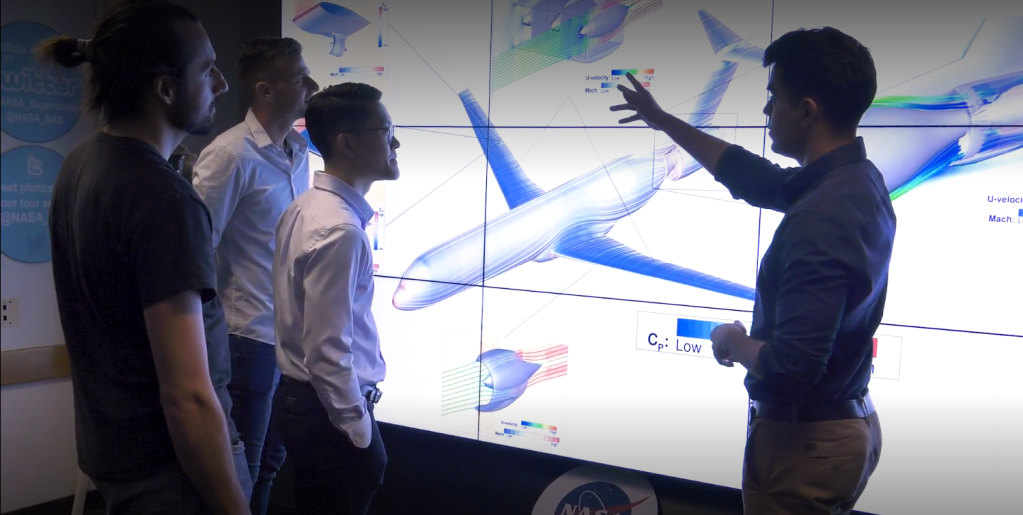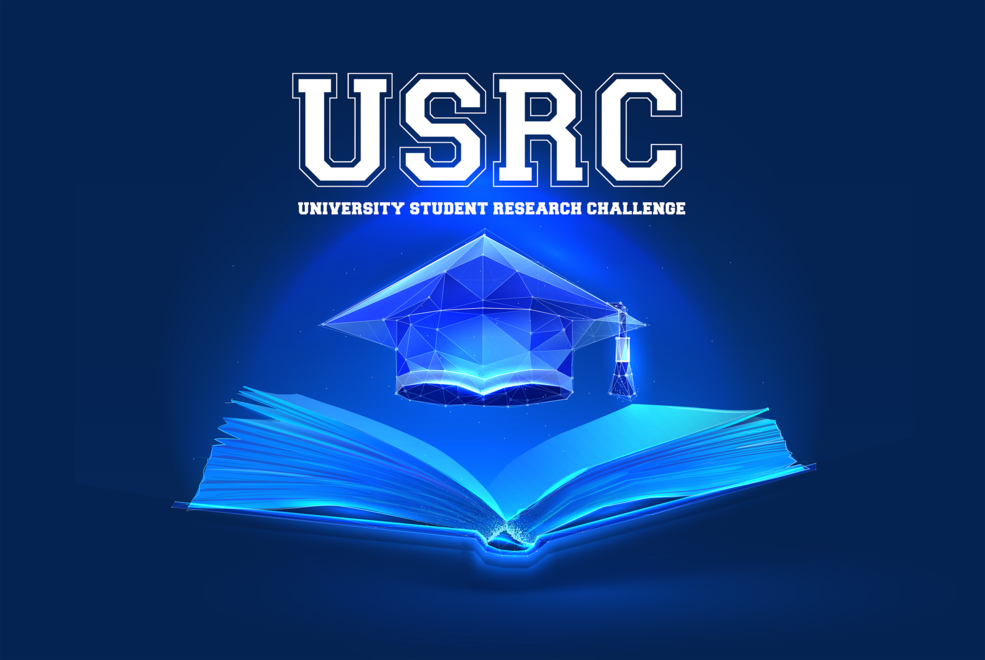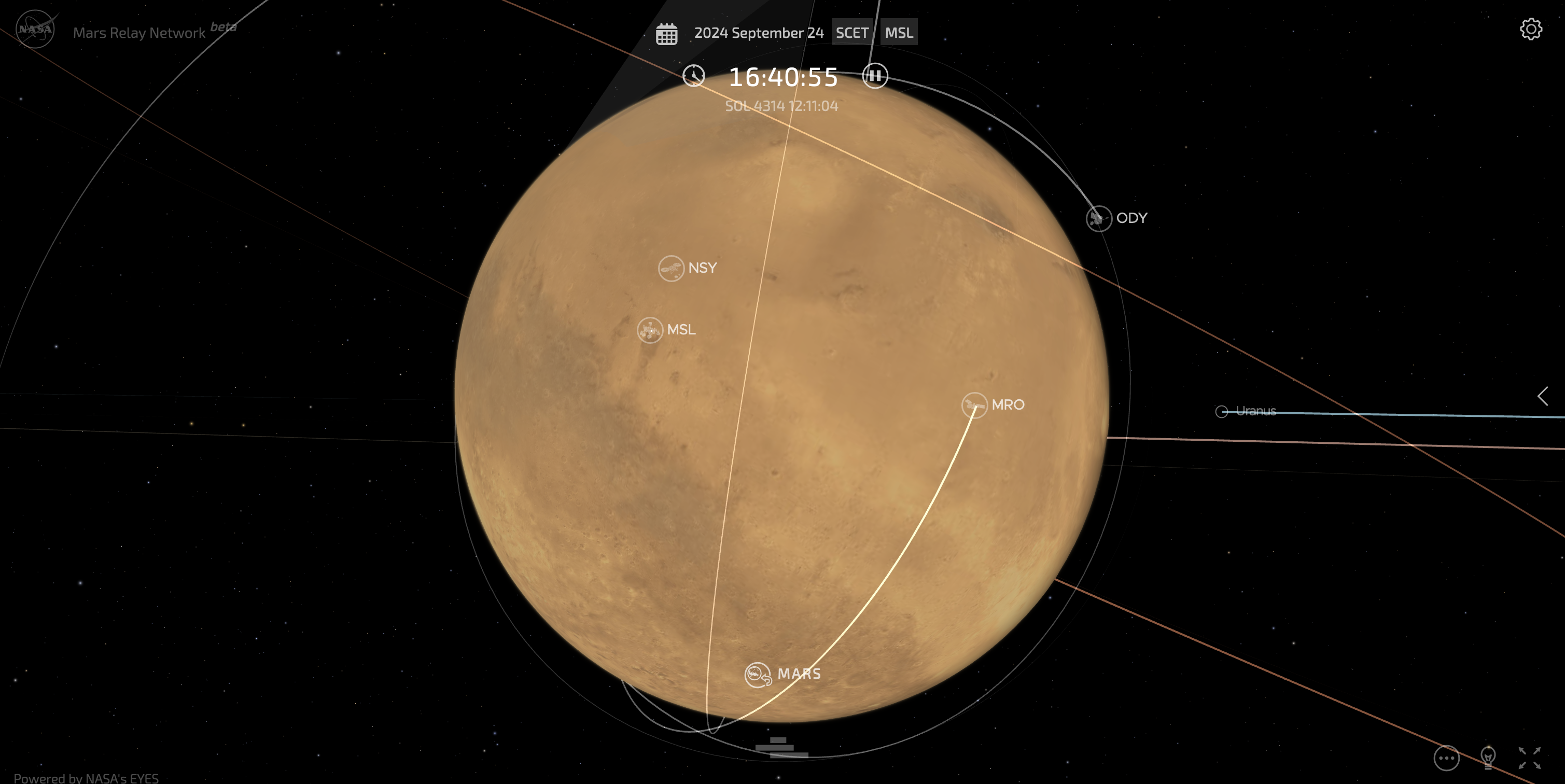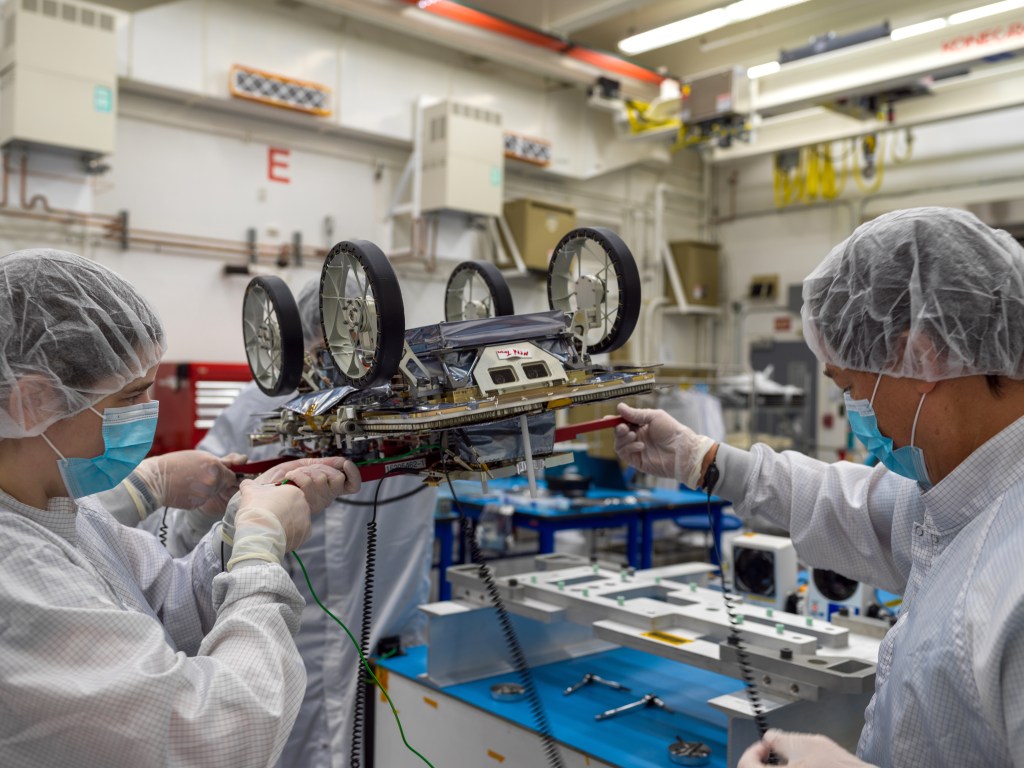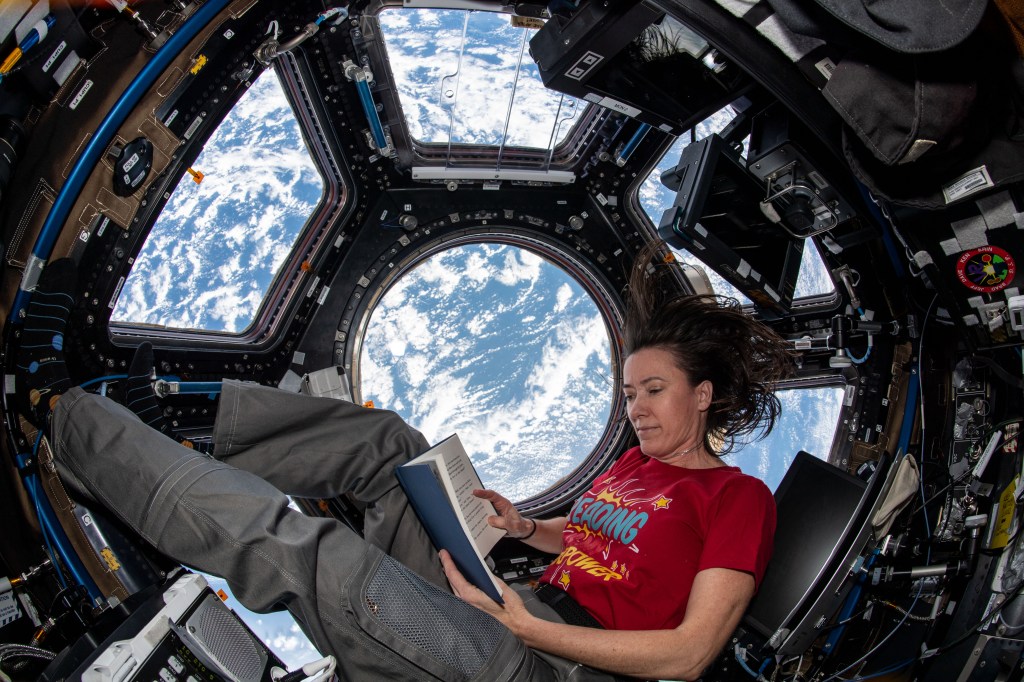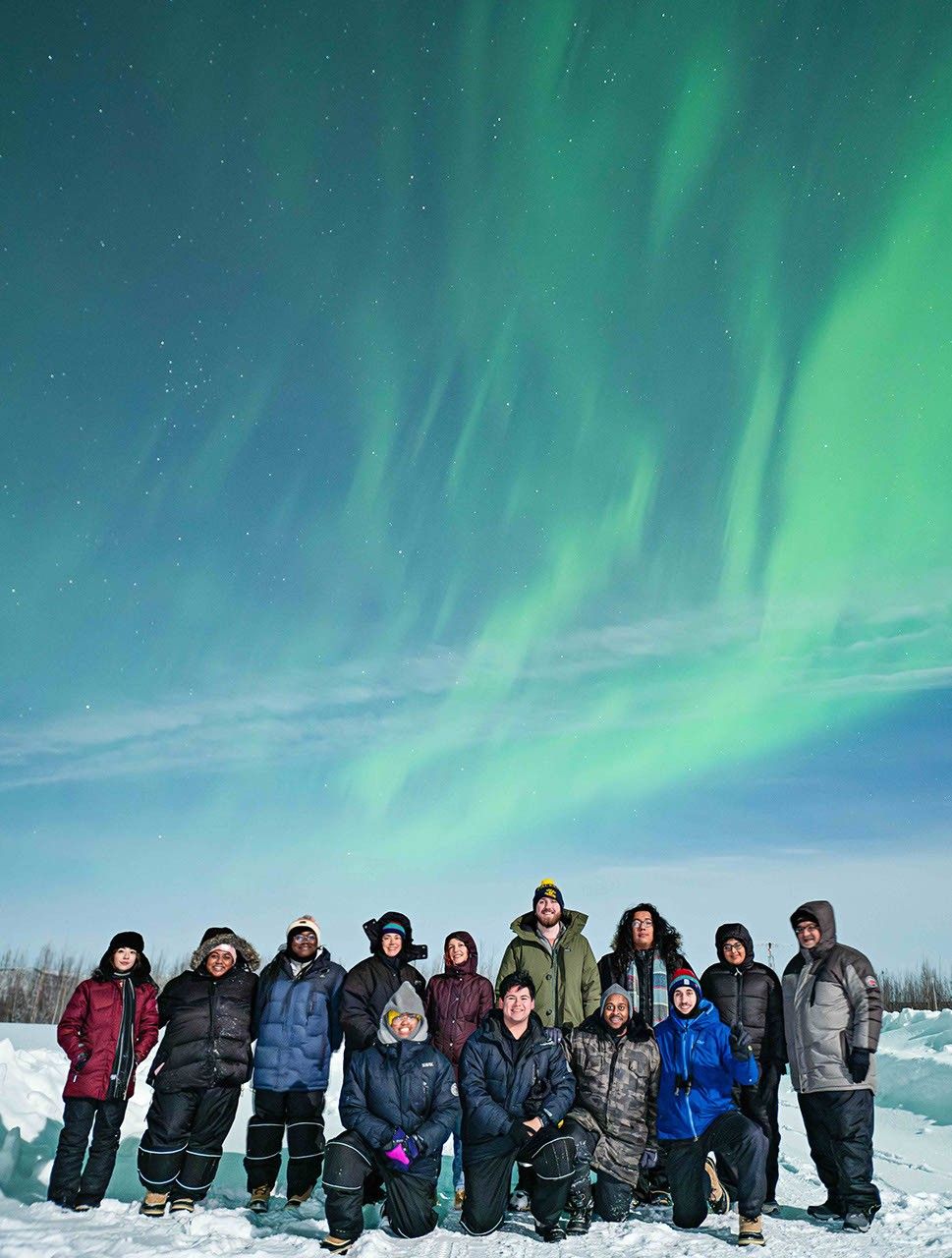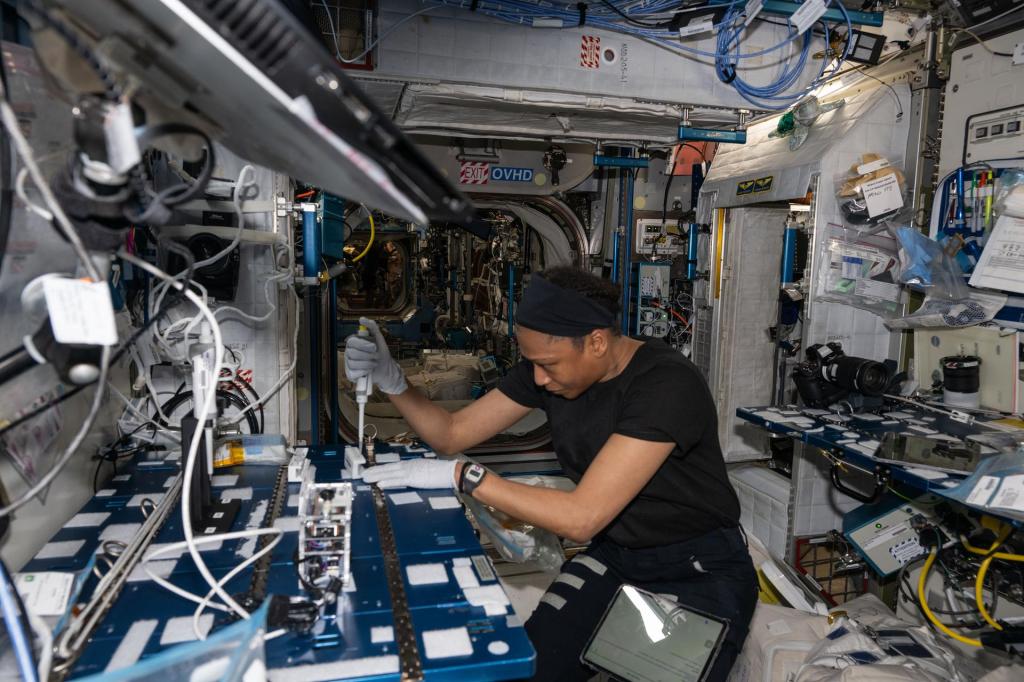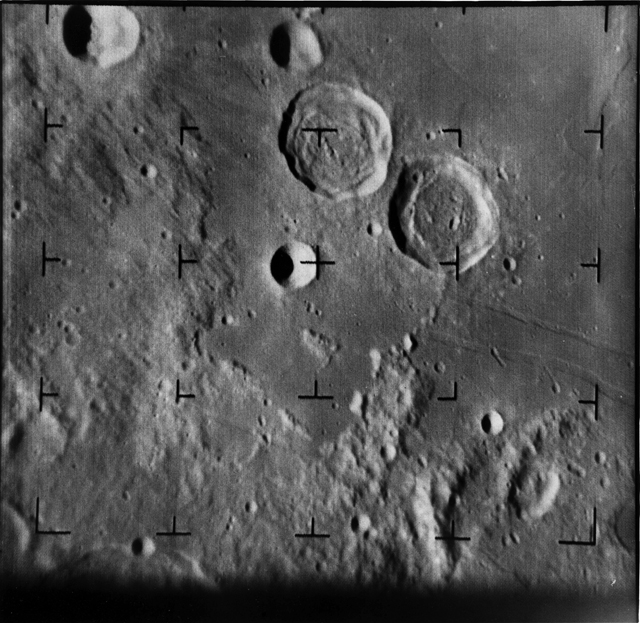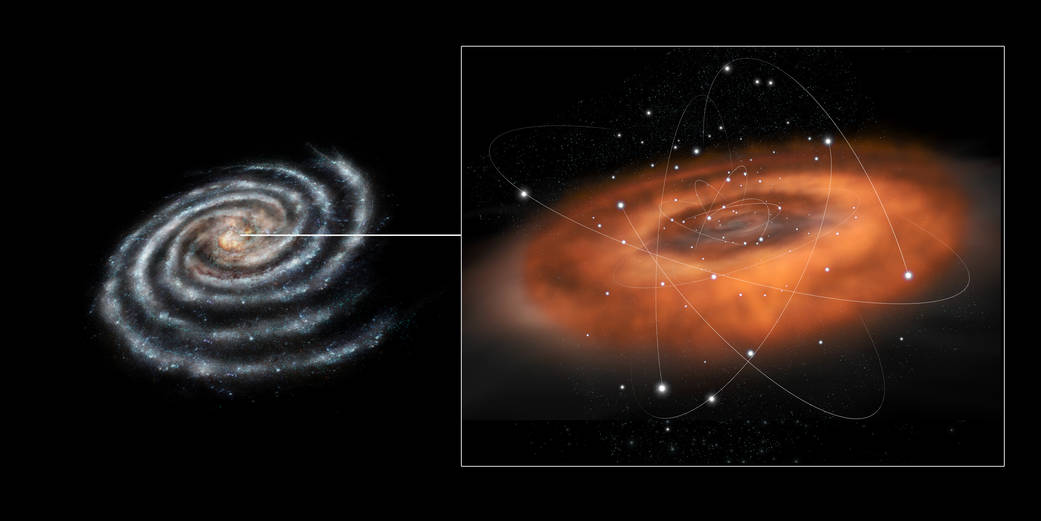
This artist’s concept illustrates the frenzied activity at the core of our Milky Way galaxy. The galactic center hosts a supermassive black hole in the region known as Sagittarius A*, or Sgr A*, with a mass of about four million times that of our sun. The Herschel space observatory has made detailed observations of surprisingly hot gas that may be orbiting or falling toward the supermassive black hole.
A dense torus of gas and dust surrounds the galactic center and occupies the innermost 15 light-years of our galaxy. Enshrouded within the disk is a central cavity, with a radius of a few light-years, filled with warm dust and lower density gas.
Part of this gas is being heated by the strong ultraviolet radiation from massive stars that closely orbit the central black hole. Heating also likely results from strong shocks, generated in collisions between gas clouds, or in material flowing at high speeds.
Herschel is a European Space Agency mission, with science instruments provided by consortia of European institutes and with important participation by NASA. NASA’s Herschel Project Office is based at NASA’s Jet Propulsion Laboratory, Pasadena, Calif. JPL contributed mission-enabling technology for two of Herschel’s three science instruments. The NASA Herschel Science Center, part of the Infrared Processing and Analysis Center at the California Institute of Technology in Pasadena, supports the United States astronomical community. Caltech manages JPL for NASA.
Credits: ESA–C. Carreau

